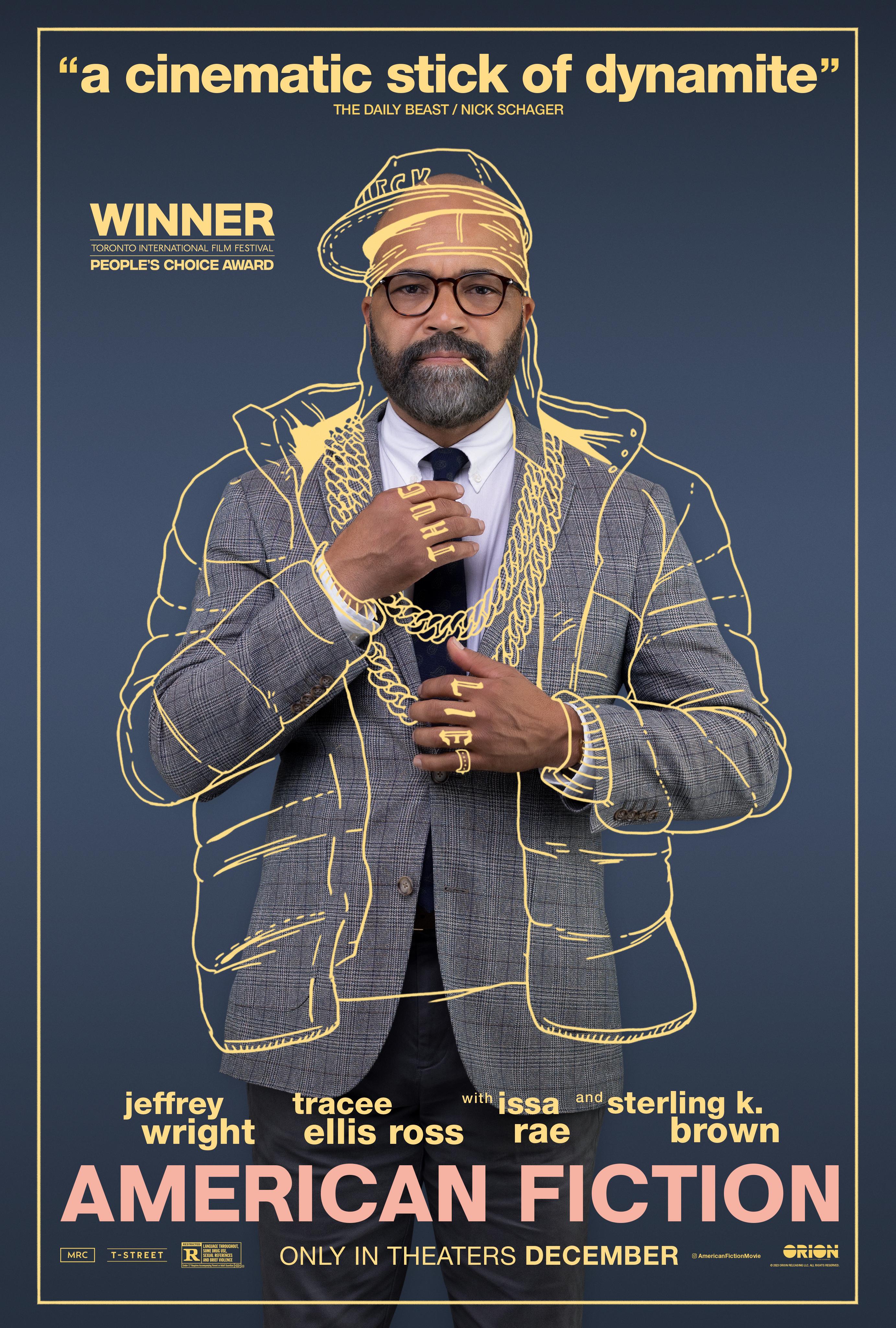American Fiction
American Fiction opens with Black college professor “Monk” Ellison (Jeffrey Wright) prepping his students to read a Flannery O’Connor short story that has the N-word in the title. When a white female pupil says she finds the word offensive, he replies, “I got over it. I’m pretty sure you can, too.” This scene sets the tone for the provocative, stingingly funny tale that follows.
Monk has a very serious, heavily researched non-fiction book about ants that he wants to get published. Nobody is interested. Meanwhile, newcomer Sintara Golden (Issa Rae) has become a publishing sensation for her novel about the “Black experience” that’s riddled with racial stereotypes. Angered by this, he facetiously pens his own novel, written in African-American Vernacular English and filled with cliches about drugs, gangs, and smoking marijuana. The rest of the movie details what happens when the pseudonymous book becomes a national sensation.
Writer/director Cord Jefferson, adapting Percival Everett’s novel Erasure, uses this premise to satirize how Black stories are received in pop culture. Generally speaking, white audiences are quicker to embrace New Jack City than If Beale Street Could Talk. White teens are more likely to listen to gangsta rap than an artist like Jon Batiste. Entertainment has made it so that the stereotypes are easier to market than works with honesty. Monk learns that the hard way, and there’s great humor in his frustration over having to sell out in order to succeed.
American Fiction makes some salient points on this topic. Even better, it avoids simplicity. The film acknowledges that Black creators have put a lot of this stuff out there, while also acknowledging that there are times when it has great validity. Who, for example, could argue that Boyz ‘N the Hood is anything other than a profoundly insightful exploration of how young Black men can get pulled into gang life? Monk and Sintara share a scene near the end that beautifully addresses the dichotomy of Black-themed entertainment. Similarly, the finale deftly avoids finger-pointing, inferring that the motivations of the creator are the ultimate arbiter of what’s sincere and what’s lazy exploitation. Jefferson never lets the story fall into blaming.
Wright gives a superior performance as Monk, hilariously bringing forth the character’s bitterness over his predicament. Scenes where he reluctantly pretends to be a wanted fugitive to promote the book are especially funny. The film balances out the main story with a look at Monk’s personal life to add balance. There are first-rate supporting performances from Sterling K. Brown as his tough-talking brother, Tracee Ellis Ross as his sympathetic sister, and Erika Alexander as his love interest. Each of them has an effect on Monk, and through them, we learn a great deal about why he possesses the mindset he does. This is a very good ensemble piece, despite one individual being at the center of the plot.
American Fiction could not be more topical. The importance of diversity in the arts has been a prominent discussion in the last few years. Jefferson reminds us that making more opportunities isn’t enough; we need to guard against pigeonholing. And really, that’s one of the most admirable qualities of the film – it doesn’t fear going against the grain and finding its own purpose.
out of four
American Fiction is rated R for language throughout, some drug use, sexual references, and brief violence. The running time is 1 hour and 57 minutes.
